About Casco Bay Recovery
They strive to help every individual become the healthiest they can be. For clients who need to begin their treatment with detox, Casco Bay Recovery provides medication-assisted treatment (MAT). The programs at this facility include regular and intensive outpatient programs, the partial hospitalization program, and the aftercare program. I like that this facility has gender-specific care available as well.
One thing unique about this location is it offers a number of different types of therapies to help with treating addiction. Cognitive behavioral therapy and dialectical behavioral therapy are offered to help patients learn how to manage stress, regulate emotions, and develop coping mechanisms.
Holistic therapy is available to help clients heal their body, mind, and spirit to support their addiction recovery. Some of the treatments that are a part of holistic therapy are yoga and meditation. Additional therapeutic approaches available at First City Recovery Center are experiential therapy, eye movement desensitization and reprocessing (EMDR) and relapse prevention.
Each program will vary in the amount of time required for patients to be at the facility. The partial hospitalization program will require clients to receive treatment for a minimum of five hours a day and five days a week. The intensive outpatient program will have individuals receive treatment for a minimum of three hours a day and a few days a week. An additional helpful service Casco Bay Recovery offers is assistance with job hunting after the completion of the intensive outpatient program.
Latest Reviews
Rehab Score
Gallery
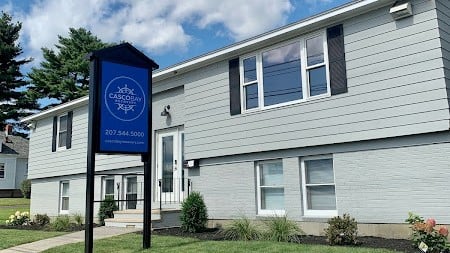
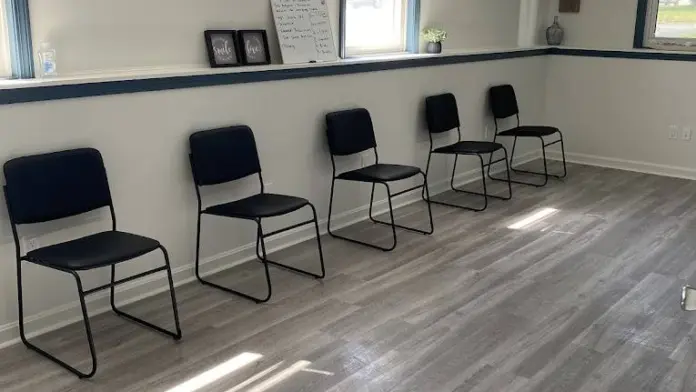
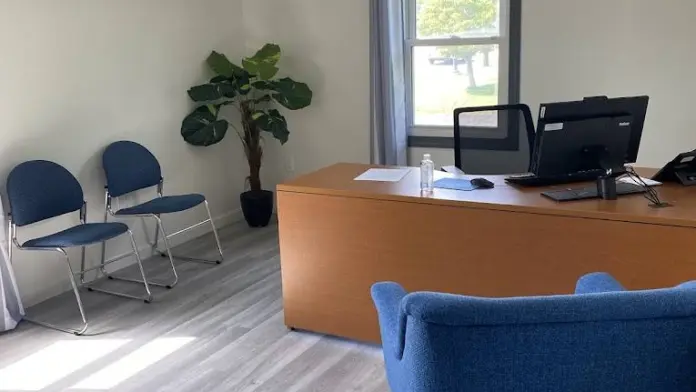
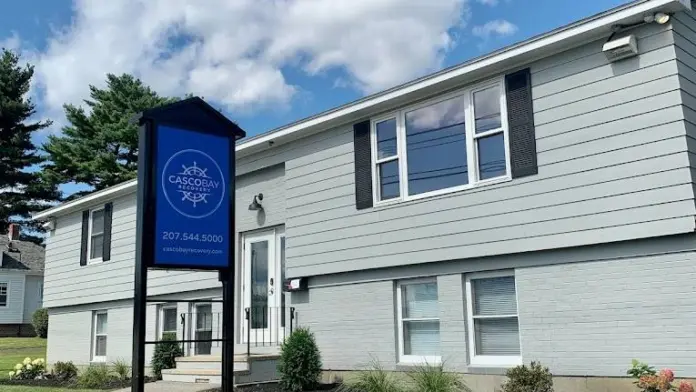
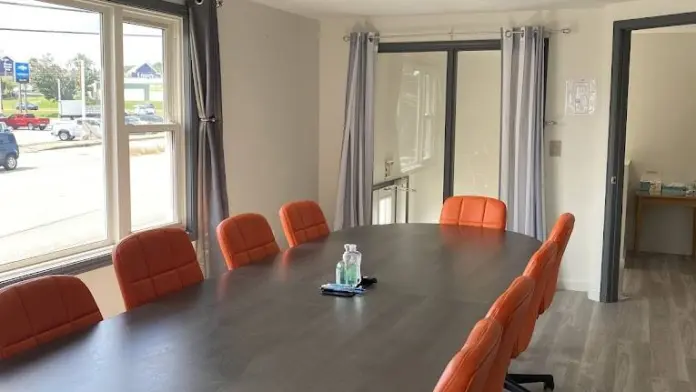
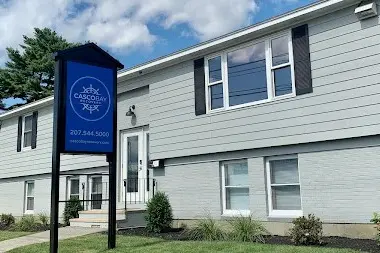
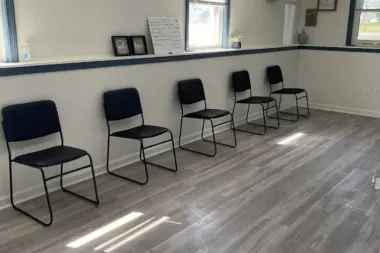
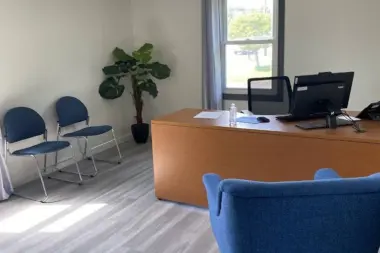
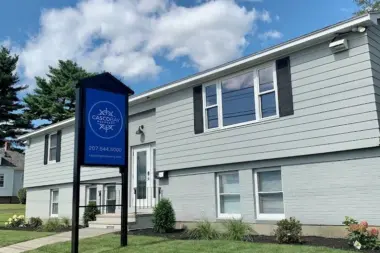
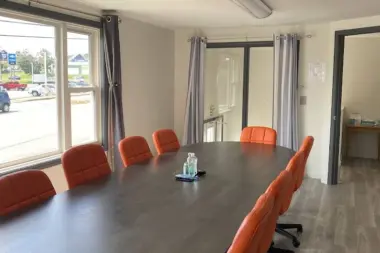
Accepted Insurance
Other Forms of Payment
Private insurance refers to any kind of healthcare coverage that isn't from the state or federal government. This includes individual and family plans offered by an employer or purchased from the Insurance Marketplace. Every plan will have different requirements and out of pocket costs so be sure to get the full details before you start treatment.
Self-pay involves paying for treatment out of your own pocket. You can use savings or credit, get a personal loan, or receive help from family and friends to fund your treatment. If you don't have insurance or your insurance plan doesn't cover a specific program, self-pay can help ensure you still get the care you need.
Financial aid can take many forms. Centers may have grants or scholarships available to clients who meet eligibility requirements. Programs that receive SAMHSA grants may have financial aid available for those who need treatment as well. Grants and scholarships can help you pai for treatment without having to repay.
Military members, veterans, and eligible dependents have access to specific insurance programs that help them get the care they need. TRICARE and VA insurance can help you access low cost or no cost addiction and mental health treatment. Programs that accept military insurance often have targeted treatment focused on the unique challenges military members, veterans, and their families face.
Medicaid is a state based program that helps lower-income individuals and families pay for healthcare. Medicaid covers addiction treatment so those enrolled can use their coverage to pay for rehab. When a program accepts Medicaid the client often pays very little or nothing out of their own pocket.
Addiction Treatments
Levels of Care
Outpatient Programs (OP) are for those seeking mental rehab or drug rehab, but who also stay at home every night. The main difference between outpatient treatment (OP) and intensive outpatient treatment (IOP) lies in the amount of hours the patient spends at the facility. Most of the time an outpatient program is designed for someone who has completed an inpatient stay and is looking to continue their growth in recovery. Outpatient is not meant to be the starting point, it is commonly referred to as aftercare.
Residential treatment programs are those that offer housing and meals in addition to substance abuse treatment. Rehab facilities that offer residential treatment allow patients to focus solely on recovery, in an environment totally separate from their lives. Some rehab centers specialize in short-term residential treatment (a few days to a week or two), while others solely provide treatment on a long-term basis (several weeks to months). Some offer both, and tailor treatment to the patient's individual requirements. Linden Oaks' Residential Stay Program offers additional support for those who may benefit from a structured living environment. A patient's stay may vary from a few days to 30 days ago. The program includes group, family and individual counseling.
Intensive Outpatient programs are for those who want or need a very structured treatment program but who also wish to live at home and continue with certain responsibilities (such as work or school). IOP substance abuse treatment programs vary in duration and intensity, and certain outpatient rehab centers will offer individualized treatment programs. The Intensive Outpatient Program gives patients the chance to participate in a structured treatment plan part-time while they transition back to home and work or other responsibilities. This program provides half-day treatment (Monday, Wednesday and Friday, 9:15 am to 12:30 pm).
Rehab aftercare programs facilitate continuity of care for clients transitioning out of inpatient treatment. In addition to outpatient counseling, recovery education, and other forms of care, services typically include peer coaching, relapse prevention, career counseling, and 12 step program induction. Clients often continue to receive support after being discharged from formal outpatient treatment. Case managers and care teams may provide medical, mental health, and social service referrals as a part of the clients' rehab aftercare service plan.
Participants in 12 step programs receive ongoing peer coaching and support as they cultivate understanding, accountability, and acceptance as a condition of their recovery journey. Though 12 step recovery is rooted in the belief in a higher power as a cornerstone of sustained sobriety, religious affiliation is not required. Regular attendance at 12 step meetings is expected. These meetings are free, peer-led, and available multiple times per day, 365 days per year, in most communities.
A sober living home in Maine is typically located in a quiet neighborhood, where residents can focus on their recovery journey and personal growth. These halfway houses are typically privately owned and maintain strict rules for residents. These standards include abstinence from drug and alcohol use, participation in support group meetings and household chores, contribution to expenses such as rent, and adherence to a set curfew.
The best time for a drug intervention in Maine is when you think a loved one needs help with substance use and they are not seeking it. A drug intervention is an organized effort to confront them and share how their behavior has affected those around them. Intervention services can provide an intervention specialist to walk you through this process.
As a form of outpatient rehabilitation, a partial hospitalization program (PHP) is a flexible option that integrates various therapeutic approaches, including medication management, individual and group therapy, and other behavioral therapy interventions. A partial hospitalization program can be an alternative to inpatient hospitalization or a "step-down" from a residential program. PHP treatment is less costly and is often covered by insurance. The length of the program can vary depending on your specific needs, typically averaging 90 days.
24-hour clinical care in Maine provides rehab clients with a more comfortable detox experience. This can lead to better recovery outcomes. Under this care, clients receive treatment for withdrawal symptoms as well as assistance with mental health disorders. This treatment may include medications, nutritional supplements, and professional counseling to address health issues, addiction issues, and co-occurring disorders.
Medical detox is the process of removing addictive substances from your body while under medical supervision. Quitting alcohol and drugs on your own can cause uncomfortable and even dangerous side effects. In a medically supervised detox, licensed medical professionals monitor you 24/7 to help keep you as safe and comfortable as possible. The process is highly individualized to fit your specific needs, but the medical detox generally takes 5-7 days.
Programs
Adult rehab programs include therapies tailored to each client's specific needs, goals, and recovery progress. They are tailored to the specific challenges adult clients may face, including family and work pressures and commitments. From inpatient and residential treatment to various levels of outpatient services, there are many options available. Some facilities also help adults work through co-occurring conditions, like anxiety, that can accompany addiction.
Young adulthood can be an exciting, yet difficult, time of transition. Individuals in their late teens to mid-20s face unique stressors related to school, jobs, families, and social circles, which can lead to a rise in substance use. Rehab centers with dedicated young adult programs will include activities and amenities that cater to this age group, with an emphasis on specialized counseling, peer socialization, and ongoing aftercare.
Recovery is most successful when clients feel accepted and validated by their peers and treatment providers. Facilities that offer LGBTQ-inclusive programming are committed to creating a safe space where everyone can grow and recover without fear of judgment or discrimination. They will have dedicated policies in place to create a safe and supportive environment that fosters free expression.
Serving in the military is both mentally and physically challenging, and can result in trauma that persists even after combat ends. Military programs are tailored to the specific and often complex needs of active duty personnel, veterans, and military families. Clients often access these programs through the U.S. Department of Veterans Affairs (VA).
Clinical Services
Cognitive behavioral therapy in Maine is a form of talk therapy. It involves a limited number of sessions during which the therapist helps the client become aware of negative thinking and replace it with positive thought patterns. This in turn helps the individual respond to challenges in healthier ways.
Dialectical behavior therapy in Maine helps you challenge distorted thinking so you can develop better patterns of thoughts and behaviors. It incorporates many of the same methods as cognitive behavioral therapy, with an additional focus on intense emotions.
Men and women in Maine who participate in group therapy sessions find it builds a sense of community among the participants. Group therapy is usually facilitated by trained therapists who incorporate evidence based techniques that promote recovery and lasting change.
Individual therapy offers personalized sessions for drug and alcohol addiction treatment to help uncover and address the root causes of addictive behavior. Your therapist will provide individualized, one on one support to help you build resilience and develop healthier habits with a focus on long term sobriety.
The goal of motivational interviewing in Maine is twofold. First is to increase your motivation to change. Second is to help you make a commitment to change. The process involves allowing you to express your views and concerns out loud. The therapist will listen affirm and encourage you to make the changes you desire in your life.
The goal of trauma therapy is to help you process and heal from experiencing or witnessing traumatic events. Your therapist helps you to integrate the experience coherently and then explores the emotions and situations that trigger your responses. This helps you heal and reduces your symptoms.
Couples in Maine may seek couples therapy to develop skills that will strengthen their relationship. As they learn how to manage challenges and conflict, these skills help with current and future issues.
The therapist engaged in family therapy work with all family members to understand the impact addiction has had on the family unit and individual members. They help develop collective strategies for recovery and facilitate open discussions to help families build resilience and improve interactions. This helps to support their loved one's path to recovery.
Amenities
-
Yoga Studio
-
Residential Setting
-
Private Rooms
-
Hiking
-
Mountain Views
-
Walking Trails
Staff & Accreditations
Staff
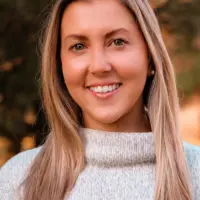
Leslie Briggs
Director, Admissions

Gregory Perchik, LCSW, CCS
Clinical Director
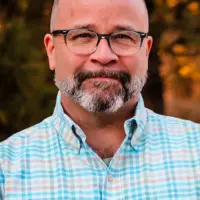
Jason Franklin, CADC
Primary Counselor
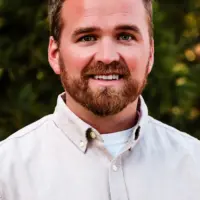
Nicholas Pfenning, LADC, CCS
Program Director
Accreditations

LegitScript has reviewed Casco Bay Recovery as part of their certification program, and has determined that it meets the LegitScript standards for legality, safety and transparency.
LegitScript verified in

State Licenses are permits issued by government agencies that allow rehab organizations to conduct business legally within a certain geographical area. Typically, the kind of program a rehab facility offers, along with its physical location, determines which licenses are required to operate legally.
State License: Maine

The Joint Commission, formerly known as JCAHO, is a nonprofit organization that accredits rehab organizations and programs. Founded in 1951, the Joint Commision's mission is to improve the quality of patient care and demonstrating the quality of patient care.
Joint Commission Accreditation: Yes
Contact Information
989 Brighton Ave
Portland, ME 04102


